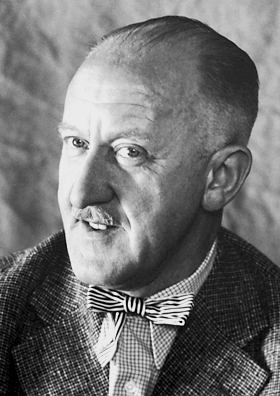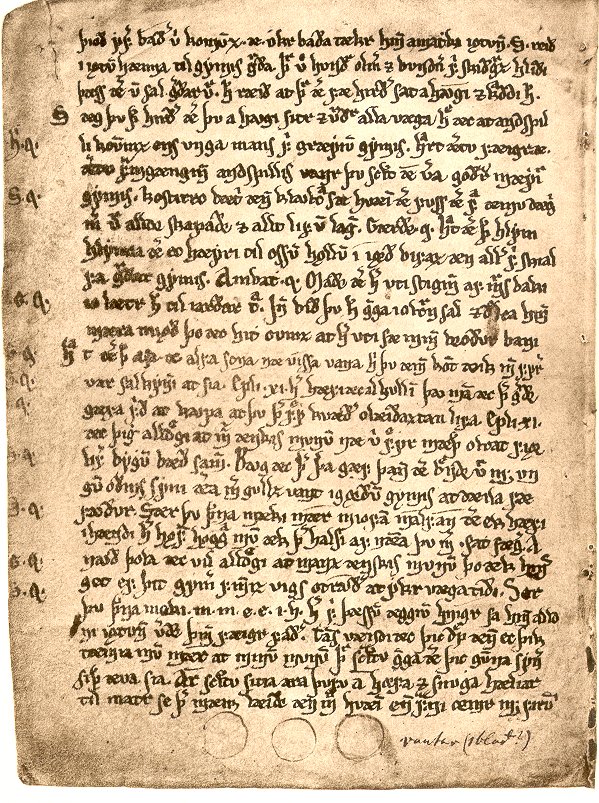|
Bryndís Björgvinsdóttir
Bryndís Björgvinsdóttir (born 24 March 1982) is an Icelandic author and folklorist. She started her writing career at fifteen when she co-authored the book Orðabelgur Ormars ofurmennis (The Wordballoon of Worm Wonderman). In 2011 she published her second book, the children's book ''Flugan sem stöðvaði stríðið'' (The Fly Who Ended the War) which won the Icelandic Children's Book Prize (2011). In 2014 she published the young adult book ''Hafnfirðingabrandarinn'' (The Local Joke) which won both the Icelandic Literary Prize (2014) and the Icelandic Women's Literature Prize (or Fjöruverðlaunin 2014). Bryndís is an adjunct professor at Iceland Academy of the Arts. Activism In 2015 Bryndís Björgvinsdóttir, Using social media, has actively encouraged the Icelandic government and Icelandic people to help out and open their homes for fleeing Syrian refugees, during the Syrian Civil War. The call for activism has indeed helped the Icelandic government to rethink thei ... [...More Info...] [...Related Items...] OR: [Wikipedia] [Google] [Baidu] |
List Of Icelandic Writers
Iceland has a rich literary history, which has carried on into the modern period. Some of the best known examples of Icelandic literature are the Sagas of Icelanders. These are prose narratives based on historical events that took place in Iceland and the surrounding areas during the Saga Age. Most of these sagas were recorded during the 13th and 14th centuries, but the original authors and subsequent recorders of the works are unknown and thus not listed here. Although it has been suggested that Snorri Sturluson is the author of ''Egil's Saga''. The Saga tradition is not limited only to Iceland, and is an integral part of Norse mythology throughout the Nordics. Another dominant form of Icelandic literature is poetry. Iceland has a rich history of poets, with many poets listed here. The early poetry of Iceland is Old Norse poetry, which is divided into the anonymous Eddic poetry, and the Skaldic poetry attributed to a series of skalds, who were court poets who lived in the V ... [...More Info...] [...Related Items...] OR: [Wikipedia] [Google] [Baidu] |
Icelandic Women Writers
This is a list of women writers who were born in Iceland or whose writings are closely associated with that country. A * Anna Mjöll Ólafsdóttir, jazz songwriter * Anna Svanhildur Björnsdóttir, poet *Arndís Þórarinsdóttir, children's books author *Auður Ava Ólafsdóttir (born 1958), novelist, poet *Auður Jónsdóttir (born 1973), novelist, playwright, journalist *Auður Laxness, writer and wife of Halldór Laxness Á * Álfrún Gunnlaugsdóttir (born 1938), novelist * Áslaug Jónsdóttir, children's book author * Ágústína Jónsdóttir (born 1949), poet B * Bergljót Arnalds, children's book author *Bergþóra Árnadóttir, folk song writer *Birgitta Jónsdóttir (born 1967), politician, poet, editor *Björk, songwriter * Bryndís Björgvinsdóttir (born 1982), novelist * Brynhildur Þórarinsdóttir (born 1970), children's writer D * Drífa Viðar (1920–1971), writer, artist and educator E * Elín Briem (1856–1937), teacher, cookbook writer *Elín Ebba Gun ... [...More Info...] [...Related Items...] OR: [Wikipedia] [Google] [Baidu] |
Icelandic Children's Writers
Icelandic refers to anything of, from, or related to Iceland and may refer to: *Icelandic people *Icelandic language *Icelandic alphabet *Icelandic cuisine See also * Icelander (other) * Icelandic Airlines, a predecessor of Icelandair * Icelandic horse, a breed of domestic horse * Icelandic sheep, a breed of domestic sheep * Icelandic Sheepdog, a breed of domestic dog * Icelandic cattle Icelandic cattle ( is, íslenskur nautgripur ) are a breed of cattle native to Iceland. Cattle were first brought to the island during the Settlement of Iceland a thousand years ago. Icelandic cows are an especially colorful breed with a wide v ..., a breed of cattle * Icelandic chicken, a breed of chicken {{disambig Language and nationality disambiguation pages ... [...More Info...] [...Related Items...] OR: [Wikipedia] [Google] [Baidu] |
Icelandic Writers
Icelandic refers to anything of, from, or related to Iceland and may refer to: * Icelandic people * Icelandic language * Icelandic alphabet *Icelandic cuisine See also * Icelander (other) * Icelandic Airlines, a predecessor of Icelandair * Icelandic horse, a breed of domestic horse * Icelandic sheep The Icelandic is the Icelandic breed of domestic sheep. It belongs to the Northern European Short-tailed group of sheep, and is larger than most breeds in that group. It is thought that it was introduced to Iceland by Vikings in the late nint ..., a breed of domestic sheep * Icelandic Sheepdog, a breed of domestic dog * Icelandic cattle, a breed of cattle * Icelandic chicken, a breed of chicken {{disambig Language and nationality disambiguation pages ... [...More Info...] [...Related Items...] OR: [Wikipedia] [Google] [Baidu] |
1982 Births
__NOTOC__ Year 198 (CXCVIII) was a common year starting on Sunday (link will display the full calendar) of the Julian calendar. At the time, it was known as the Year of the Consulship of Sergius and Gallus (or, less frequently, year 951 '' Ab urbe condita''). The denomination 198 for this year has been used since the early medieval period, when the Anno Domini calendar era became the prevalent method in Europe for naming years. Events By place Roman Empire *January 28 **Publius Septimius Geta, son of Septimius Severus, receives the title of Caesar. **Caracalla, son of Septimius Severus, is given the title of Augustus. China *Winter – Battle of Xiapi: The allied armies led by Cao Cao and Liu Bei defeat Lü Bu; afterward Cao Cao has him executed. By topic Religion * Marcus I succeeds Olympianus as Patriarch of Constantinople (until 211). Births * Lu Kai (or Jingfeng), Chinese official and general (d. 269) * Quan Cong, Chinese general and advisor ( ... [...More Info...] [...Related Items...] OR: [Wikipedia] [Google] [Baidu] |
Living People
Related categories * :Year of birth missing (living people) / :Year of birth unknown * :Date of birth missing (living people) / :Date of birth unknown * :Place of birth missing (living people) / :Place of birth unknown * :Year of death missing / :Year of death unknown * :Date of death missing / :Date of death unknown * :Place of death missing / :Place of death unknown * :Missing middle or first names See also * :Dead people * :Template:L, which generates this category or death years, and birth year and sort keys. : {{DEFAULTSORT:Living people 21st-century people People by status ... [...More Info...] [...Related Items...] OR: [Wikipedia] [Google] [Baidu] |
Icelandic Literature
Icelandic literature refers to literature written in Iceland or by Icelandic people. It is best known for the sagas written in medieval times, starting in the 13th century. As Icelandic and Old Norse are almost the same, and because Icelandic works constitute most of Old Norse literature, Old Norse literature is often wrongly considered a subset of Icelandic literature. However, works by Norwegians are present in the standard reader ''Sýnisbók íslenzkra bókmennta til miðrar átjándu aldar'', compiled by Sigurður Nordal on the grounds that the language was the same. Early Icelandic literature The medieval Icelandic literature is usually divided into three parts: *Eddic poetry *Sagas *Skaldic poetry The ''Eddas'' There has been some discussion on the probable etymology of the term "Edda". Most say it stems from the Old Norse term ''edda'', which means great-grandmother, but some see a reference to Oddi, a place where Snorri Sturluson Snorri Sturluson ( ; ; 1179 – 22 S ... [...More Info...] [...Related Items...] OR: [Wikipedia] [Google] [Baidu] |
Icelandic Language
Icelandic (; is, íslenska, link=no ) is a North Germanic language spoken by about 314,000 people, the vast majority of whom live in Iceland, where it is the national language. Due to being a West Scandinavian language, it is most closely related to Faroese, western Norwegian dialects, and the extinct language, Norn. The language is more conservative than most other Germanic languages. While most of them have greatly reduced levels of inflection (particularly noun declension), Icelandic retains a four- case synthetic grammar (comparable to German, though considerably more conservative and synthetic) and is distinguished by a wide assortment of irregular declensions. Icelandic vocabulary is also deeply conservative, with the country's language regulator maintaining an active policy of coining terms based on older Icelandic words rather than directly taking in loanwords from other languages. Since the written language has not changed much, Icelandic speakers can read classic ... [...More Info...] [...Related Items...] OR: [Wikipedia] [Google] [Baidu] |
Politics Of Iceland
The politics of Iceland take place in the framework of a parliamentary representative democratic republic, whereby the president is the head of state, while the prime minister of Iceland serves as the head of government in a multi-party system. Executive power is exercised by the government. Legislative power is vested in both the government and the parliament, the Althingi. The judiciary is independent of the executive and the legislature. Iceland is arguably the world's oldest assembly democracy, and has been rated as a "full democracy" in 2021. Executive branch , President , Guðni Th. Jóhannesson , Independent , 1 August 2016 , - , Prime Minister , Katrín Jakobsdóttir , Left-Green Movement , 30 November 2017 Elected to a four-year term, the President has limited powers and is poised in a largely ceremonial office that serves as a diplomat and figurehead. On 1 August 2016, Guðni Th. Jóhannesson became the new president of Iceland. He was re-elected with an overwhe ... [...More Info...] [...Related Items...] OR: [Wikipedia] [Google] [Baidu] |
Iceland Academy Of The Arts
History Iceland University of the Arts ( is, Listaháskóli Íslands ) is an Icelandic institution of higher art education, located in Reykjavík, which offers the only university-level degrees in the arts in Iceland.Lisa Z. ValdimarsdottirIceland Academy of the Arts, Department of Design and Architecture - Library(pdf) The institution was founded on 21 September 1998 by consolidating the Iceland Drama School and the Reykjavík Arts School, and classes began in autumn 1999.Jóhannes ÞórðarsonMA proposal for Applied Arts at the Iceland Academy of the Arts - dept. of design and architecturepdf), 22 January 2010: "IAA started in 1999". Education Following the standards of the Bologna process, IUA offers bachelor's degree programmes (3 years, 180 ECTS credits, Bachelor of Fine Arts), and master's degree programmes (2 years, 120 ECTS credits, Master of Fine Arts). There are seven study programmes available at IUA: * Architecture Arts Education * Design * Film * Fin ... [...More Info...] [...Related Items...] OR: [Wikipedia] [Google] [Baidu] |



